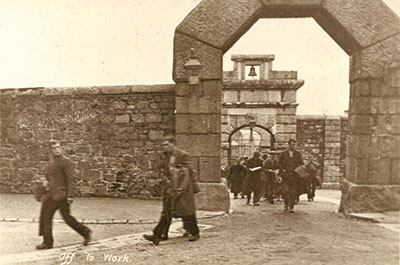AR: 14 Soldiers in God’s Army
The Adventist Review continues the recent focus on the anniversary of World War I with the story, "14 Soldiers in God’s Army" (Victor Hulbert, 28 Oct 2014).
The article begins with a brief description of the abuse the Adventists experienced:
Fourteen Adventist soldiers laid down their tools at 4:00 p.m. on Friday to prepare for Sabbath. But the sergeants were ready, armed with sticks, revolvers, and boots. Severe beatings followed. The bruised British conscripts then were roughly thrust into prison cells, irons tightly clamped on their wrists, digging into their flesh, their hands behind their backs.
After relating the staggering statistics relating to WWI, Hulbert shares,
Adventist soldiers found a different kind of horror. Determined to keep the Sabbath and not carry weapons, they were beaten, starved, forced to clean toilets to a shine without equipment, and punished with the dreaded “crucifixion,” which saw soldiers shackled in irons and painfully strapped to a gun wheel or some other object for hours in the hot sun.
Hulbert describes the difference between the ways leaders in Great Britain and Germany responded to the war. Adventists in Germany predominantly supported fighting for the nation, though some did resist, which led to the Reform Movement.
Adventists in Britain took a different stance. They followed the Adventist example of noncombatance adopted during the American Civil War in 1861 to 1865. This was not an easy choice, and British Adventists were widely scorned as belonging to an odd, working-class church exported from the U.S.
Things went smoothly, more-or-less, for the first 18 months for the Adventists who were conscripted.
But a new young officer took charge in November 1917, and he declared that Sabbath duty was mandatory. When the Adventists refused to work, they were placed under court martial and sentenced to six months of hard labor at Military Prison No. 3 in Le Havre.
The lengthy article addresses how the Adventists were treated in prison and the steps to their eventual release. Special focus is given to their first Sabbath in prison.
The complete article can be read here.
Additional APF stories about WWI:
- WWI and the Adventist Church (30 Sept 2014)
- Viewpoints #15: Dr. Idel Suarez Jr, Reform Movement President (5 Sept 2014)
- Love Your Enemy? (27 Aug 2014)
- Symposium on the Impact of WWI on Adventism (2 June 2014)

